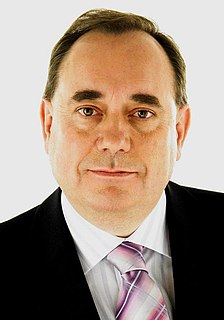
Leeds City Council is the local authority of the City of Leeds in West Yorkshire, England. It is a metropolitan district council, one of five in West Yorkshire and one of 36 in the metropolitan counties of England, and provides the majority of local government services in Leeds. Since 1 April 2014 it has been a constituent council of the West Yorkshire Combined Authority.

The first elections to the new local authorities established by the Local Government Act 1972 in England and Wales and the new Northern Ireland district councils created by the Local Government Act 1972 took place in 1973. Elections to the existing Greater London Council also took place.
The Progressive Party was a municipal political organisation that operated in several Scottish cities and towns in the 20th century. It was based on tacit anti-Labour co-operation between the Unionist Party, Scottish Liberals and independents.

There were elections for the Scottish district councils in 1977.

The 2012 Scottish local elections, were held on 3 May, in all 32 local authorities. The Scottish National Party (SNP) overtook Labour to win the highest share of the vote, and retained and strengthened its position as the party with most councillors. Labour also made gains, while the Liberal Democrats experienced meltdown, falling behind the Conservatives. For the first time since the introduction of the Single Transferable Vote system, the SNP won majority control of 2 councils, from no overall control. Labour also won majority control of 2 councils from no overall control, while retaining majority control over 2 councils.

There were elections for the Scottish district councils in 1980.
Elections for the London Borough of Merton were held on 4 May 1978 to elect members of Merton London Borough Council in London, England. This was on the same day as other local elections in England and Scotland.
The Moderates were a municipal political organisation operating in Scotland in the early 20th century. The group was based on tacit anti-Labour co-operation between local Unionist Party, Liberal and Independents politicians. The Moderates dominated Glasgow Corporation until the 1933 election, when the rise of the Scottish Protestant League split the Moderate vote and allowed Labour to gain control of the council for the first time.

An Election to the Edinburgh Corporation was held on 3 November 1936, alongside municipal elections across Scotland. The election took place midst an increasingly sectarian political climate, with hardline Protestant and anti-Catholic political parties being on the rise in Glasgow and Edinburgh in the 1930s. The Protestant Action Society (PAS); Edinburgh's far-right Protestant grouping which had inspired a sectarian riot the previous year, won 31% of the vote and got 5 new members elected. The PAS had won 24% in the previous years election.

An Election to the Edinburgh Corporation was held on 7 May 1968, alongside municipal elections across Scotland. Of the councils 68 seats, 22 were up for election. Despite receiving the most votes of any single party, the SNP won only 7 seats. Unlike in Glasgow, the Progressives and Conservatives did not run on a joint ticket. Despite that however the parties only ran competing candidates in the Gorgie-Dalry ward.

An Election to the Edinburgh Corporation was held on 6 May 1969, alongside municipal elections across Scotland. Of the councils 68 seats, 23 were up for election.

An Election to the Edinburgh Corporation was held on 1 May 1973, alongside municipal elections across Scotland. Of the councils 69 seats, 26 were up for election. Labour, despite needing only 1 gain to take control of the council, failed to do so, preventing them from a historic win.

Local elections were held in Scotland in 1973, as part of that years wider British local elections.
An Election to Glasgow City Council was held on 1 May 1973, alongside municipal elections across Scotland. Of the councils 113 seats, 37 were up for election. Labour managed to increase its majority on the council to 55.
Local elections were held in Scotland in May 1970, as part of that years wider British local elections.
An Election to Glasgow City Council was held on 6 May 1969, alongside municipal elections across Scotland. Of the councils 111 seats, 37 were up for election. The election saw Labour losing its majority, with the council being gained by a Progressive-Conservative alliance, who emerged from the election with a total of 57 of the council's 111 seats.
The 1892 United Kingdom local elections took place throughout 1892. The elections were the second following the Local Government Act 1888 and Local Government (Scotland) Act 1889, which had established county councils and county borough councils in England, Wales, and Scotland. The election saw elections of members to these various new county councils.
Local elections took place in Scotland in 1972.

The 2017 United Kingdom local elections were held on Thursday 4 May 2017. Local elections were held across Great Britain, with elections to 35 English local authorities and all councils in Scotland and Wales.
The 1896 United Kingdom local elections took place in late 1896 for municipal councils, as well as Rural districts. Municipal elections were held across England and Wales on Monday 2 November, with Scotland holding municipal elections the following day. Municipal elections in Ireland took place later that month, on Wednesday 25 November.










